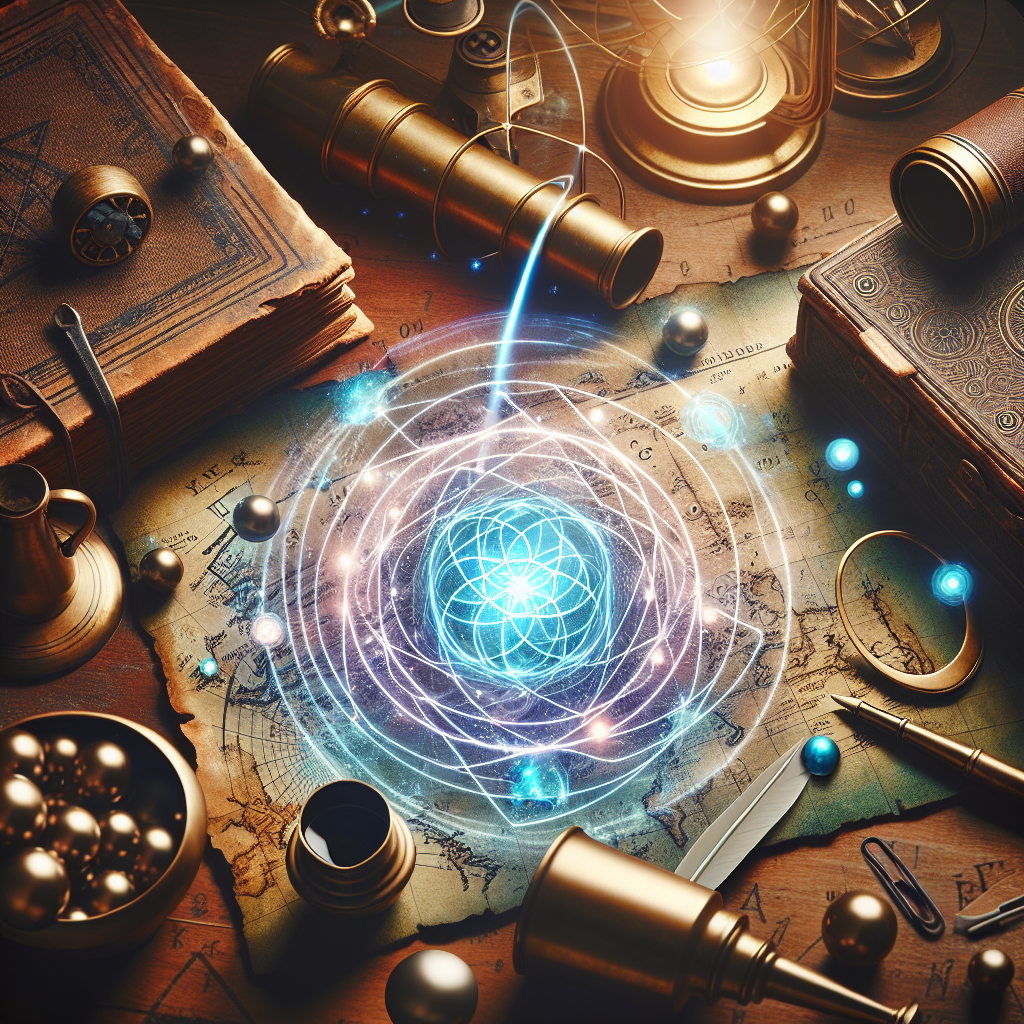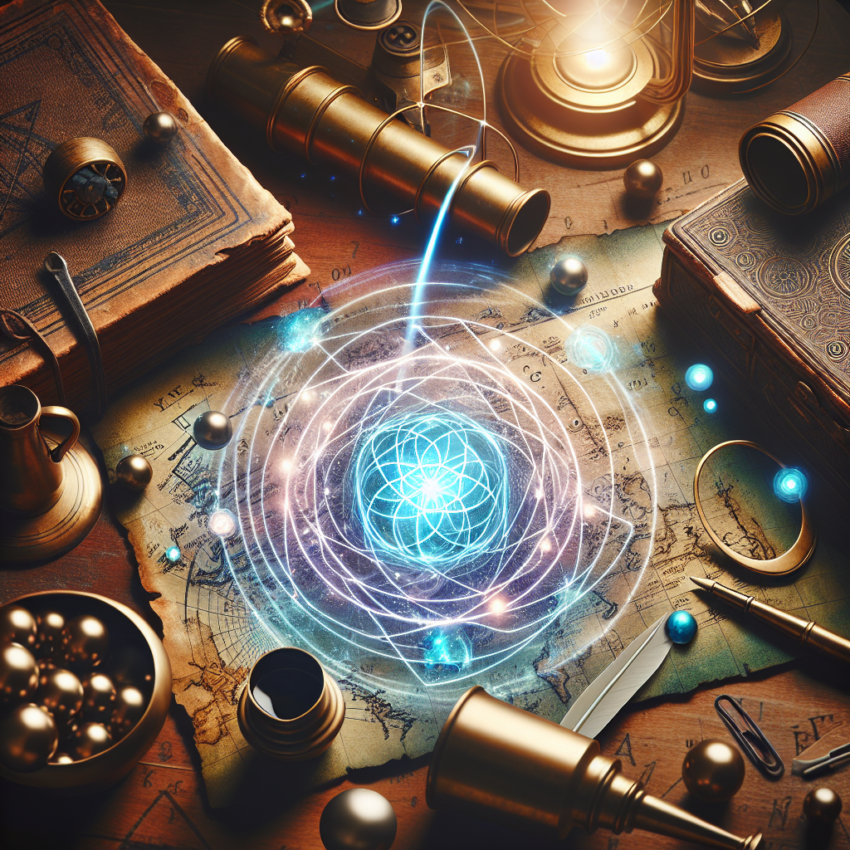
The Lost Chronicle of the Quantum Explorer
In the year 2147, humanity had conquered interstellar travel but not the enigma of time. Dr. Elara Thane, a renowned quantum physicist, was about to change that. Her work on quantum entanglement promised to reveal the secrets of the universe’s past.
One dark night, under the guise of a solar eclipse, Dr. Thane activated her device, the Quantum Chronicle. The lab filled with an eerie silence, broken only by the hum of the machine. Suddenly, she was there yet not there, her consciousness sprawling across different timelines.
As she navigated these quantum threads, Elara witnessed moments from Earth’s history: the fall of empires, the birth of galaxies, the quiet before the Big Bang. But something else caught her eye—a timeline where humanity never progressed beyond the Stone Age. Here, she saw a civilization thriving in harmony with nature, devoid of the technological advancements that defined her time.
The deeper she delved, the more she realized. This Stone Age society was not devoid of knowledge; instead, they had chosen a different path, one where knowledge was preserved through oral traditions, where every individual was a walking library of tales and teachings. Their progress was not in technology but in human connection, empathy, and understanding of the natural world.
Elara’s journey ended as abruptly as it had begun. Back in her lab, the device’s hum ceased, leaving her with visions and questions. Had she misinterpreted progress? Were there different forms of advancement beyond the mechanical and the digital?
She documented her findings in a sealed chronicle, which was to remain hidden, fearing the implications of such knowledge on her era’s development. However, her final entry pondered if this alternate path might be humanity’s salvation in an increasingly disconnected world.
The ending was mind-bending: Elara decided to leave her chronicle in an anomaly of time, accessible only to those whose minds could grasp the quantum threads. The last page was blank, an invitation for future explorers to write their understanding, suggesting that the future of human progress might be written by those who learn to listen to the past.
